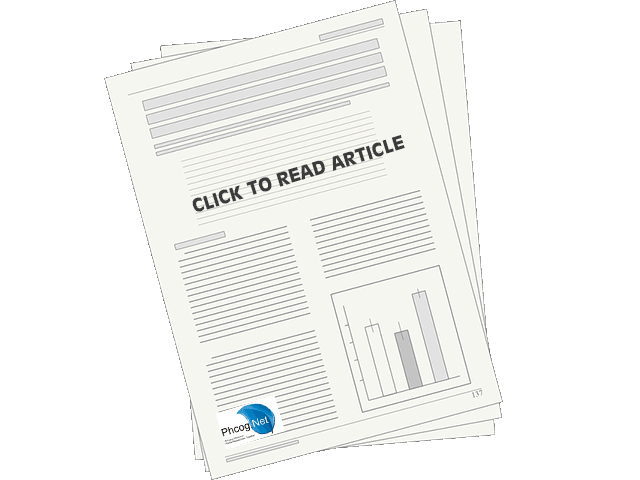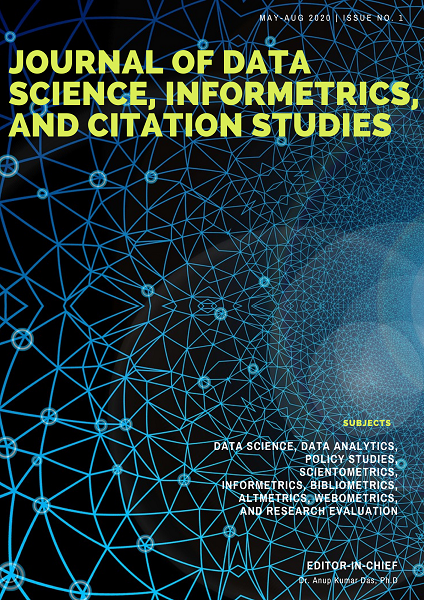Mapping of Scholarly Output and its Impact Using Open-Source Software
DOI:
https://doi.org/10.5530/jcitation.2.3.34Keywords:
Open-Source Software, Scholarly Output, MappingAbstract
Measuring scholarly output has been frequently undertaken to measure the research performance of an institution, journal, or author using the various evaluation techniques and software tools available for analysis and visualization. It has a significant impact on the growth and development of scholarly activities. To provide a platform for professionals/researchers to develop the skills and competencies required for measuring scholarly output, Central Library, IIT Delhi has organized the One Week Workshop on "Mapping of Scholarly Output and its Impact using Open-Source Software" from 22nd -26th May 2023.
The workshop aimed to train professionals to develop a comprehensive and systematic method for mapping scholarly output and its impact using Open-Source Software using R, RStudio, and other visualization tools.
Ms. Vanita Khanchandani, Assistant Librarian, Central Library IIT Delhi, & Master of Ceremony, commenced the Inaugural Session with a virtual tour of the Central Library and an introduction of individual participants with their backgrounds, current roles, and expectations from the workshop. The workshop was formally inaugurated by Prof. Rangan Banerjee, Director, Indian Institute of Technology Delhi and Chief Guest of the workshop in the Presence of Prof. Aswini Agarwal, Chairperson ACL, Dr. Nabi Hasan, Head Librarian, Dr. Neeraj K. Chaurasia, Deputy Librarian and participants. The Saraswati Vandana followed it.
Dr. Nabi Hasan welcomed the dignitaries to the workshop with Live Plants. During the Inaugural session, Dr. Mohit Grag, Coordinator & Assistant Librarian, formally gave an overview of the workshop, expert sessions, practical sessions, quiz program organized each day and expected outcomes from the workshop. Prof. Aswini Agarwal gave his view on the workshop and libraries' current role in mapping the institute's research output. He highlighted that displaying the research productivity and impact of the faculty members on the department/institute website creates awareness of the institute's research activities. Further, he emphasized that the library is suitable for mapping research output, and they should educate and train the professionals with degree/diploma courses.
In his inaugural address, Prof. Rangan Banerjee, Director of IIT Delhi, highlighted that the library's role is being changed from the traditional. We need to learn how to use the metrics. Libraries must use open-source software to measure the institute's research output in various parameters and advise the institute authority to grow. This workshop is an opportunity to gain such knowledge. He also appreciated team Central Library's efforts to organize such a workshop to improve higher education research and society. Before the end of the Inaugural Session, Dr. Neeraj K. Chaurasia has given the Vote of Thanks.
On day one, the first expert session was by Dr. Nabi Hasan on Tools for maximizing academic visibility and impact of research output, followed by the session on Evolution and Evaluation of Knowledge by Dr. Raj Kumar Bhardwaj, Librarian, St Stephen's College Delhi and Introduction to Bibliometrics and Laws of Scientometrics by Dr. Vijay Kumar Verma, IIT Delhi. These expert sessions gave the foundation for the workshop with the importance of the research visibility, tools, metrics, and laws of Scientometrics, which are currently being used to measure the research output in various capacities. The experts highlighted the impact of scholarly research output, the importance of citations, and the visibility and evolution of bibliometrics and scientometrics laws. At the end of day one, an interaction and assessment quiz were conducted, and participants participated enthusiastically. Shailendra Kumar Singh and Pankaj Bhati won the 1st and 2nd prizes, respectively.
Day two of the workshop started with the expert session on the Research Metrics (Journal & Author) by Dr. Neeraj K. Chaurasia. He discussed the various metrics, including the author, journal, institutional, and article-level metrics. Further, he highlighted the role of libraries in measuring the research output using different research metrics. The 2nd session on Research Evaluation, Citation and Scholarly Communication was by G. Mahesh, Chief Scientist & Head, Research Journals, CSIR-National Institute of Science Communication and Policy Research (CSIR-NIScPR), New Delhi. He highlighted the historical background of citation-based metrics and trends, including citation ethics in scholarly publications. He discussed ethical issues such as citation justice, citation manipulation, citation doping, over-citation, under-citation, etc., with examples of white, black, and grey citations. He further elaborated on the quality of scientific research in India.
The 3rd session was taken by Ms. Vanita Khanchandani, who covered practical components of bibliographical databases such as Scopus, Web of Science and PubMed. She practised the participants with various search and retrieval features from these databases. The 4th session on Research Performance Analysis was by Mr. Shankar B. Chavan, IIT Delhi, who covered the why, what and how to conduct aspects of research and various factors of research performance analysis in the current area. Siddharth Dangi and Sanghamitra Dalbehera won the 2nd quiz.
Day three of the workshop was taken over by Dr. Mohit Garg and his technical team (Mr. Manu T R, Mr. Vijay Kumar, Mr. Mukesh Behera & Mr. Varun Kumar). Dr. Mohit briefed about the importance of scholarly mapping and open-source software, including the mapping of research productivity using R. He gave details on how to define the search strings of a research problem while searching and how to use the Scopus advanced search facilities, Scopus Subject Areas, All Science Journal Classification Codes (ASJC) to get maximum of research results. The participants practised installing software and packages for bibliometric analysis like R, Rstudio, and Biblioshiny (as part of R). They covered the Basics of R & Rstudio, including vector, lists, data frame data pre-processing, standardization, transformation, etc. Working in R on Scopus data with specific problem statements gives more practical insights into using R programming for analyzing the research output. The team also explained the BiblioShiny, a bibliometrics tool, with uploading the Scopus data and shows how to create the various analysis parameters, including year-wise frequency of publications, author co-citation, coupling, collaboration, co-word analysis and Three-field plot, etc. In the evening, a session on Data visualization by Dr. Manu T R, IIT Delhi, was taken, giving an overview of data visualization, including types and tools. He also covered the evaluation of DV tools and the graph's structure, including current trends in data visualization as library services. Kanupriya Thakur and Amit Soni won the 3rd day quiz.
Day four of the workshop started with a practical session on R programming. The participants were trained in creating datasets, data frames, data extraction, data import/export, etc. During the session, participants learned how to make the various graphs (plot) of the year-wise frequency publications, number of authors contributed and author-wise distribution of publications, etc., using the R. In the evening, The expert session on social network analysis: a conceptual and methodological tool was taken by Prof. Sujit Bhattacharya, CSIR-NIScPR. He covered case studies of social network analysis networking concepts, including SNA mapping, co-authorship mapping, eigenvector centrality, ego networks and ‘whole’ networks, etc. Participants were then trained on the VOSviewer, a software tool for constructing and visualizing bibliometric networks. They covered the installation and creation of maps based on the bibliographical (Scopus) data, including co-authorship, bibliographic coupling, citation networking, co-occurrence, co-citation, etc. Rupinder Singh and Sheena Rehman won the 4th day quiz competition.
Day five of the workshop started with a theoretical session by Dr. Mohit Garg on the eigenfactor, page rank and text analytics research metrics. He covered how these metrics help to identify the highly influenced researcher in a particular research area. After that, an expert session on Dynamics of Academic Rankings: NIRF, Times, QS was taken by Dr. Kalyan Bhattacharjee, Joint registrar, IIT Delhi, who insights on the various institutional ranking systems, parameters and how measuring scholarly output helps in the growth of institutional rankings. He highlighted how IIT Delhi has been ranking in leading numbers and the role of the Central Library in achieving institutional goals, including rankings. After the expert session, a short quiz was conducted, and Kamalesh Patel won the same.
As per the workshop assessment module, the combined One Week workshop quiz was conducted, and Zeeshan Shafi won this quiz. Finally, the participants presented the Group Wise Case Studies (GWCS) and their workshop learnings.
The workshop ended with valedictory, feedback and certificate distribution with the presence of Chief Guest, Prof. T.R. Sreekrishnan, Deputy Director (Operations), IIT Delhi. Ms. Gunjan Mishra, IIT Delhi, commenced the Valedictory Session. Dr. Nabi Hasan, Head Librarian, welcomed Prof. T.R. Sreekrishnan with live plant and gave the welcome address. A short video of participants’ feedback was shown, followed by Dr. Manu T R's reading of the workshop report. In his valedictory address, Prof. T.R. Sreekrishnan encouraged the participants to use open-source tools and metrics, learned during the workshop at their working places to map the research output of their institutions and other research activities. The valedictory session ended with a vote of thanks by Dr. Vijay Kumar Verma.

Downloads
Published
How to Cite
Issue
Section
License
Copyright (c) 2023 Nabi Hasan, Manu T R, Mohit Garg

This work is licensed under a Creative Commons Attribution-NonCommercial-NoDerivatives 4.0 International License.



